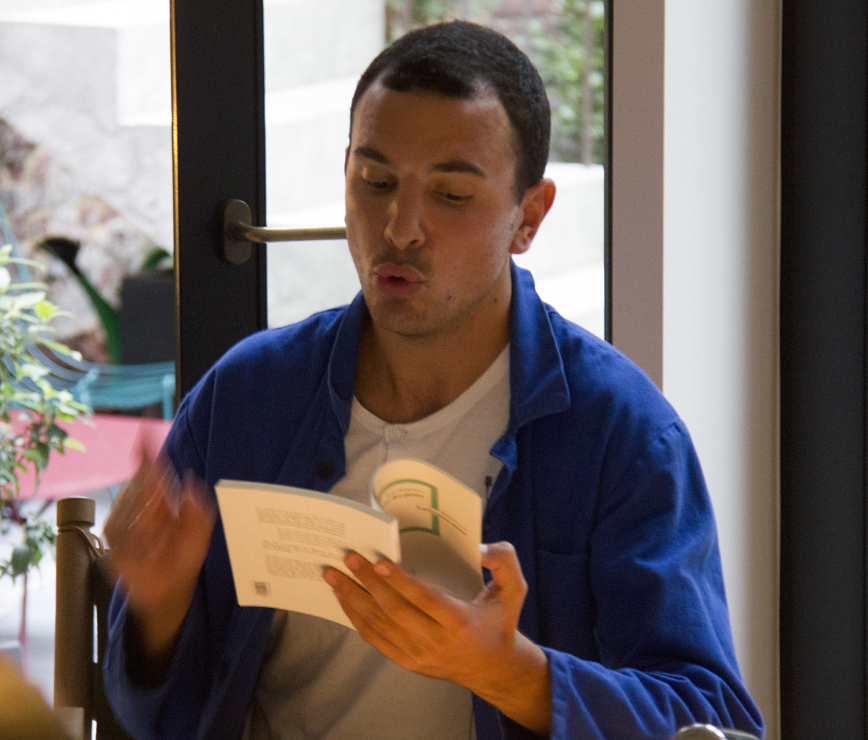Language: French
The Fondation Thalie invites individuals to come and talk about their relationships with literature and to propose their ideal bibliography through five titles, which will feed the Foundation library to make it a shared library, both timeless yet reflective of the current times.
Boris Bergmann will present Dites le avec des peurs (éditions Marcel, 2018).
This reading will be followed by a discussion around 5 books of his “bibliothèque idéale”:
Panégyrique (vol 1) by Guy Debord (Ed. Gallimard)
Rencontres avec Bram van Velde by Charles Juliet (Ed. P.O.L)
Le Mont Analogue by René Daumal (Ed. Gallimard)
Le Rire de la Méduse by Hélène Cixous (Ed. Galilée)
Les Bacchantes by Euripide (Ed. de Minuit)
Duration: 1h
Language: french
Boris Bergmann is a writer. He was born in Paris in 1992. At the age of 15, he published his first book, Viens là que je te tue ma belle (éditions Scali), which received the Prix de Flore du lycéen in 2007. This book has been adapted for Arte by Director Jean Stéphane Sauvaire with, among others, Béatrice Dalle. Then, Boris Bergmann continues to write: a novel about the lie (1000 Mensonges, éditions Denoêl, 2010), another about the commitment (Déserteur, Editions Calmant-Lévy, 2016), a fourth on the desire (Nage Libre, Calmann editions, 2018), and more recently, a new one (Say it with fears, Marcel editions, 2018). Between September 2017 and August 2018, he spends one year in residence at the Villa Medici: he prepares his fifth novel and his first poetry collection. Boris Bergmann also likes reading aloud: at the Cartier Foundation in Paris, for Hans Ulrich Obrist, or in Rome at the Gavin Brown Gallery. He participates in exhibitions, such as Take me I’m Your, on Rome in the spring of 2018. This year, his research has focused on fanaticism and pure love, the city and loss, revolution and dreams – as if the extremes were, in spite of themselves, reconcilable.



